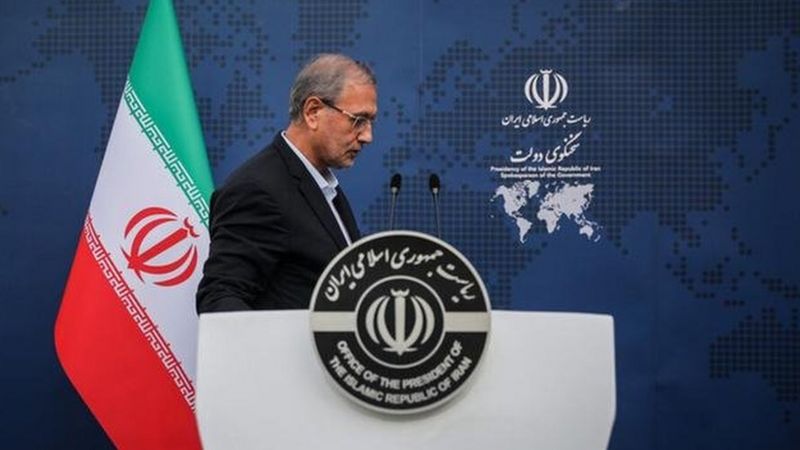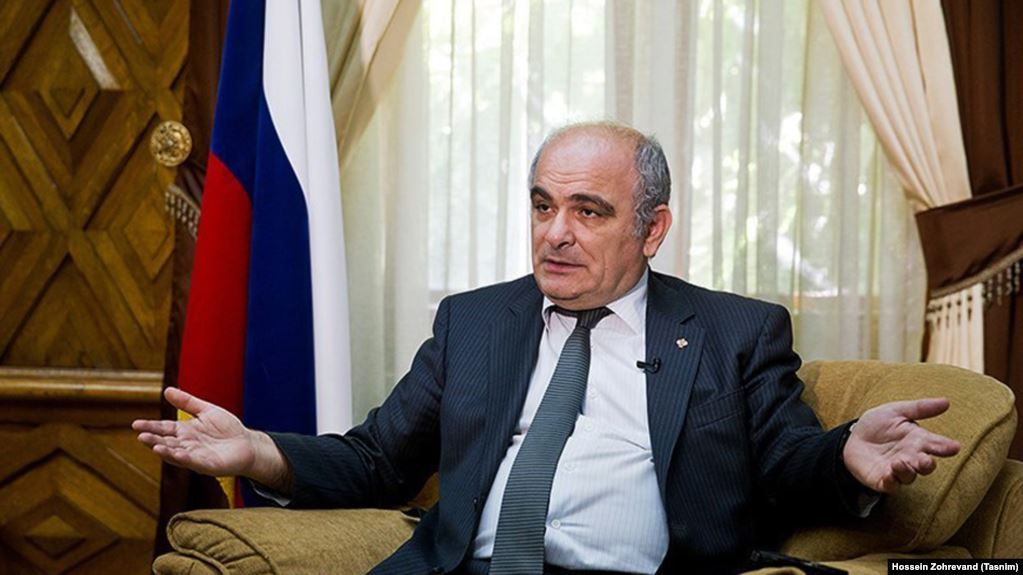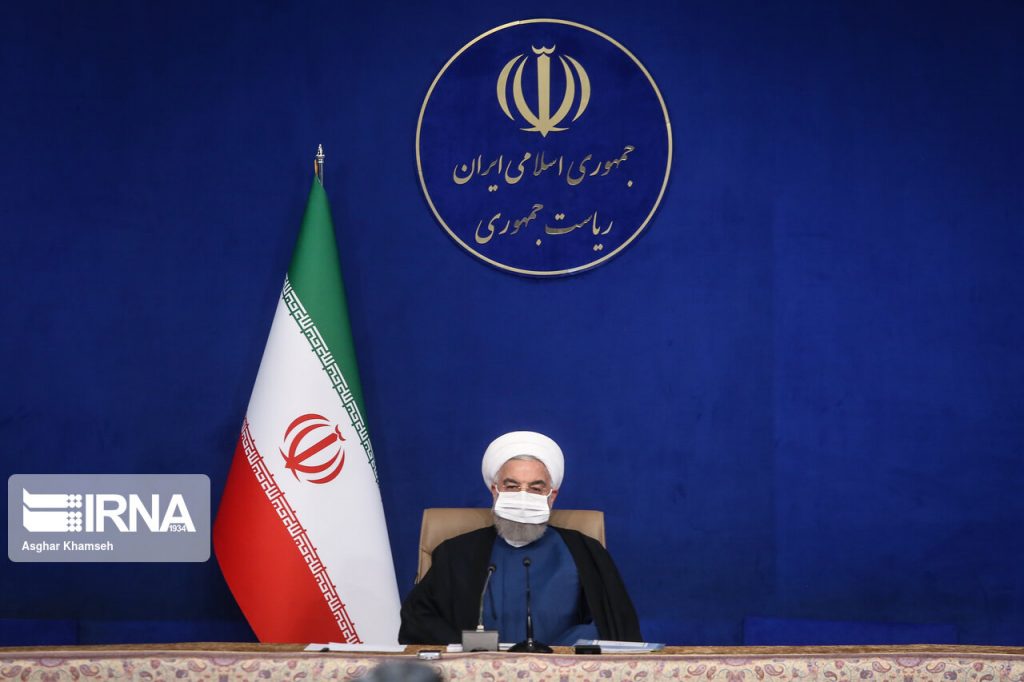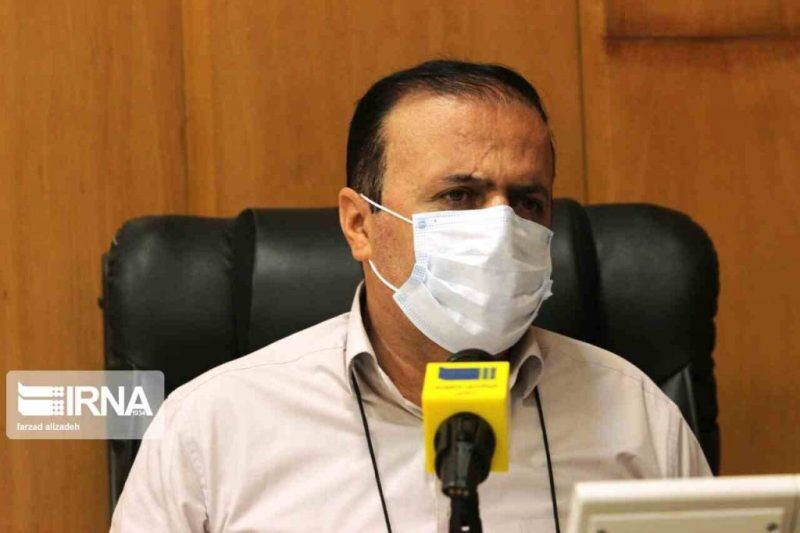
Walking on the Tightrope of the Poverty Line
The editorial of Aftab Yazd underscores the economic problems that Iranian people have to face in meeting their basic needs.
While workers’ salaries and wages are just over 1.8 million tomans, reaching 3 million tomans with other benefits, the poverty line for a family of four has been estimated at 10 million tomans – a shocking number which indicates the existence of poverty among the majority of the people.
Economically vulnerable groups within society are increasing and becoming poorer, while the middle class is shrinking year after year. Mothers and fathers go back home to their children feeling sad and ashamed, because they cannot provide the minimum livelihood for them.
At least 3.5 million students cannot access online classes simply because they are not capable of buying a smartphone. The retirees who were the center of gravity in their families are struggling under the economic pressures.
The cost of housing is high, prices of goods are not containable, more and more people are not capable of meeting the basic needs for their own families, malnutrition among children is on the rise, and many low-income families are suffering from poverty.
Everybody knows that the country is badly affected by sanctions, which requires strict economic regulation – blocking the path to bribery, embezzlement, nepotism, etc. During these years, we have been witnessing several cases of large-scale embezzlements in Iran. While Iranian families are struggling to meet their basic needs, the embezzlers are enjoying themselves overseas in casinos.
Under the pressure of US sanctions, solving the abovementioned economic problems will contribute to overcoming poverty. But what are the government’s plans for doing so, except telling the people to live a frugal life and be patient?
Eliminating Rouhani; Playing the Opponents’ Game
The editorial of Shargh states that the resignation or impeachment of the Iranian president will have no practical gains for the country; it will only benefit Trump who will claim victory for his own maximum pressure policy against Iran.
Recently, some political “reformist” activists have raised the issue of the Iranian president’s resignation. And a while ago, the lawmakers demanded the impeachment of the president, which did not come to fruition. Even though both suggestions would have the same outcome, the intention of those suggesting them were different, as one was brought forth by the “reformists” and one by the hardline “principlists”.
Yet despite the different intentions, the outcome of the resignation or impeachment would be the same. If the president resigns, he is asking to be forgiven and excused for not being able to fulfill his duties. If so, he must provide explanations about his inability to do his task. Given Hassan Rouhani’s personality, it is very unlikely for this to happen.
On the other hand, if he is impeached by the “hardliners” in the Parliament, it will be to put more pressure on him, not for removing him from his position. Hardline “principlists” better than anybody else know the root cause of all the problems in the country. The only reason they want to bring the president to Parliament is for insulting, shouting, and cursing – regardless of the outcome. They are after trashing the president and then will assume victory for themselves.
If they discard Rouhani after the impeachment, who are they going to replace him with? If so, for 50 days, the first vice president will replace him, and an election will be held. Whoever the hardline lawmakers have in mind will most probably be elected.
But even if a new president is elected, what can he do? Those who are proposed are much weaker and more incompetent than Rouhani. Whoever is elected will have no plans to deal with the crisis and will lack the required personal qualities for confronting the crisis.
Under the current circumstances, creating a political crisis will only help the current president of the United States. With the removal of the Iranian president, Trump will say that his restrictions and sanctions have brought the Iranian government to its knees. As such, the resignation or impeachment of the Iranian president is to Trump’s advantage and a sign of crisis in Iran.
Is There Any Solution for the Current Situation in the Country?
The editorial of Ebtekar underscores that even though Iran’s economy is severely hemorrhaging because of the US sanctions, there can still be some solutions – if there is the necessary resolve to do so on behalf of the government.
The price of foreign currency has become uncontainable. The stock market – the government’s only achievement – is in a coma. Production and employment are shrinking every day. The markets are in disarray and unpredictable. The government cannot control the level of liquidity. Economic security is at its lowest. No one dares to make any investment. Also, the country’s economy is suffering from chronic corruption, which, in the absence of any transparent structure, is sucking the blood of the economy.
How can the country be saved under these circumstances? With what resolve and ideas? We all know about the impact of US sanctions and how catastrophic they have been for Iran. The situation is as if the country is suffering from cancer and is being stabbed as well. To treat the cancer, Iran must pull out the knife of sanctions and stop the bleeding.
But under the current circumstances, the sanctions will be in place until further notice. All economic experts have talked of how unbearable it is to continue under the current situation. It has been written and said over and over that the US sanctions have laid bare Iran’s vulnerability. Even before sanctions, it was obvious that Iran’s economy suffers from serious flaws. But the sanctions have made it absolutely necessary to start reforming the flawed economic structures.
Now that as a result of the US sanctions, the country’s revenues have sharply plummeted, it has to reform its expenditure as well. Some hold that because some officials benefit from the chaos in the market, they place obstacles against any attempt to change the current situation.
Nevertheless, there is no doubt that there are solutions for the crisis in the currency market, if there is any determination.
Concern Over Daily Bread and Political/Economic Inequalities
The editorial of Shargh daily explains how political inequality leads to economic injustice, which results in rich people taking advantage of high-ranking positions, seeking better job opportunities and having better educational opportunities.
When we juxtapose political and economic inequalities, what is significant is the mutual and co-dependent relationship between these two. Exacerbation of economic inequality results in unwillingness to participate in the political process, because low-income groups do not have proper platforms to defend their own rights.
On the other hand, with the increase in the financial power of the wealthy, their political influence will grow as well. The increasing the role of money and advertisements in elections shows that the wealthy people can take advantage of their wealth to influence the elections. What is more, with the spread of poverty in society, there will be efforts to gain people’s votes by spending money on and for them.
So as widespread poverty and concern over earning daily bread will result in a drop in people’s participation in the political process, the statesmen must try to improve the living conditions of low-income groups, thus preventing the increase in political inequality in society.
Nevertheless, it seems that the correlation between political inequality and increasing poverty in society is not that obvious. As a result of political inequality, a group of citizens will play a more determined role shaping the future of society. This political inequality will result in more economic inequality.
The rich will have better jobs and will take advantage of natural resources, banking facilities, etc. As a result, in the upcoming years, the rich people can take over all high-ranking positions and lucrative jobs. If we are looking for an indicator to assess inequality in society, we must pay attention to the distribution of educational opportunities, fellowships and rent-seeking regarding natural resources.
Political inequality might not seem related to economic inequality, but it will eventually lead to brutal economic inequality.

Iranian Government: Armenia Must Give up “Occupied Regions” of Azerbaijan

Iranian government spokesperson Ali Rabiei has announced that Iran’s stance with regard to the Azerbaijan-Armenia conflict over Nagorno-Karabakh is that Azerbaijan’s occupied regions must be given up.
He urged that third party intervention in this issue is harmful and there is no military solution to the problem in this region, adding that, “We are worried about harm to our citizens in the border regions.”
According to Rabiei, Iran is one of the few countries with good relations with both Azerbaijan and Armenia and is trying to end the conflict as quickly as possible.
Prior to this, Ali Akbar Velayati, senior adviser to Ali Khamenei on international affairs, had said that Armenia must give up Azerbaijan’s occupied regions in Nagorno-Karabakh, while Iranian Defense Minister Amir Hatami had warned both sides over any assaults against Iranian territories.
According to Velayati, “A country’s territories are occupied by another country. Certain southern parts in Azerbaijan, about seven cities, are occupied by Armenia. There are four UN resolutions in this regard, all urging Armenians to abandon Azerbaijan’s occupied territories and go back to international borders.”
Velayati’s remarks were made after four representatives of Khamenei in the Iranian provinces of East Azerbaijan, Ardebil, West Azerbaijan, and Zanjan had issued statements calling Nagorno-Karabakh a part of Azerbaijan and describing any efforts for taking it back as “completely legal according to Sharia [Islamic] law.”
He underscored that the solution to the conflict over Nagorno-Karabakh is by no means military, while criticizing Israel, France, and Turkey for backing the conflicts.
Iran has good relations with Armenia and has several joint projects with this country. Iran’s relationship with Azerbaijan has been fragile at some junctures.
Azerbaijan’s relationship with Israel and water disputes between Iran and Azerbaijan in the Caspian Sea are among the most important issues between the two countries.
Russia to Give S-400 Missile System to Iran After UN Arms Embargo Expires

Russian Ambassador to Tehran Luan Jagaryan has said that when the UN arms embargo against Iran is lifted by the end of this month, his country has no problem with selling advanced weapons, including the S-400 air defense system, to the Islamic Republic.
Jagaryan underscored that, “As we said from the beginning, we have no problems in selling arms to Iran after October 19 [when the UN arms embargo is lifted].”
These remarks were made even though Washington has repeatedly warned that the S-400 system is designed to confront NATO’s fighter jets and missiles, and can collect secret intelligence from super advanced F-35 fighter jets.
Jagaryan urged that “as you know we have given the S-300 missile system to Iran. Russia has no problem in giving the S-400 system to Iran and had no problems with it even before.”
Iran has been under a UN arms embargo since 2007, but according to UN Security Council Resolution 2231 which was a part of the nuclear deal, these sanctions are going to expire on October 18.
Nevertheless, America has triggered the snapback mechanism in the nuclear deal, and the arms embargo against Iran will remain in place. In the past, US officials had considered selling the S-300 system as a violation of the resolution.
Russia has announced that it will not back the extension of the UN arms embargo against Iran after its expiration in October 2020. Russia is one of the five permanent members of the UN Security Council and has the right of veto.
Analysts hold that giving the S-400 missile system to Iran can tip the balance of power in favor of Iran in West Asia, the Gulf, and the Middle East.
Rouhani Claims Iran’s Economy is Better Than Germany’s

In surprising remarks, Iranian President Hassan Rouhani claimed that Iran’s economy is doing better than Germany’s. A newspaper made fun of Rouhani’s claims, urging that any comparison between the two would be absurd.
Amid strange and exaggerated claims about his government’s success in confronting COVID-19, Rouhani said Iran’s economy is not in poor condition; rather it is doing better than a country like Germany.
Pointing to Germany’s economy shrinking 5 percent due to coronavirus, Hassan Rouhani claimed: “This is the condition of an advanced country that is not under sanctions. Our economy is doing better than this, and our economic growth without oil will be positive by the end of the year.”
Jahan Sanat newspaper wrote that while the Iranian people are struggling hard to find eggs, the president made strange claims about the country’s economy doing better than Germany.
In response to Rouhani’s remarks, Jahan Sanat wrote that instead of appearing like a school teacher and giving advice on wearing masks, Rouhani should take more serious measures about preventing the coronavirus outbreak. It added that, “People expect much less than this, demanding that the Iranian president talk less and do not insult their intelligence by making such strange remarks.”
Contrary to Rouhani’s remarks regarding positive economic growth by the end of the year, the IMF has predicted that Iran’s economy will shrink by 6 percent in 2020, which represents the third consecutive year of negative economic growth for Iran.
Germany has one of the strongest economies in Europe. Its exports in May, despite the decrease in exports due to coronavirus, were more than 80 billion euros – double Iran’s total exports in 2019.
Iraq Deports Thousands of Iranian Arbaeen Pilgrims

Every day, Iraq deports a large number of Iranian pilgrims who have gone to the city of Karbala to take part in the Arbaeen ceremony. In coordination with Iraq, the Iranian government has asked the pilgrims not to go to Iraq due to the COVID-19 outbreak.
Despite the coronavirus pandemic, thousands of pilgrims have gone to Iraq to take part in the Shiite ritual of Arbaeen in Karbala, in which the martyrdom of Imam Hossein is commemorated every year.
Security deputy to the governor of Ilam province Mohammad Noroozi said that every day a number of Iranian pilgrims enter Iraq illegally from the Mehran border and most of them are deported by the Iraqi government. He said that the illegal trip to Iraq is considered a crime and can have legal penalties.
He explained that Ilam province shares a 430 kilometer border with Iraq which makes it possible for pilgrims to enter this country, underscoring that Iraq might enforce tough penalties on these trespassers.
The Shiite rituals held to commemorate the martyrdom of Imam Hossein are considered super spreaders for coronavirus. In Iran, a few weeks after holding Ashura and Tasua, the number of infections increased significantly. Three weeks after these ceremonies, the number of infections was over 3,000 people in Iran per day.
Iranian President Hassan Rouhani who had earlier defended holding Moharram rituals at any cost has admitted that there have been reports showing that health protocols were not observed during these ceremonies. This is why the Islamic Republic was trying to prevent Iranian pilgrims from going to Karbala to take part in the Arbaeen ceremony in this city.
Every year, tens of thousands of Shiite pilgrims from different countries including Iran go to Karbala to take part in this ceremony. It was said that last year 14 million Shiite pilgrims took part in this ceremony, with 2 million people coming from Iran.
But this year, due to the coronavirus pandemic, the Iraqi government has put a restriction on the number of pilgrims from other countries. According to France’s news agency, only 4,000 Iranian pilgrims were allowed to go to Karbala.
